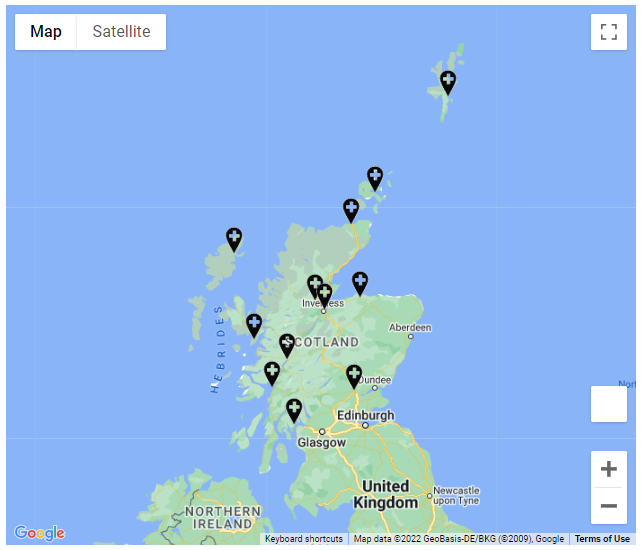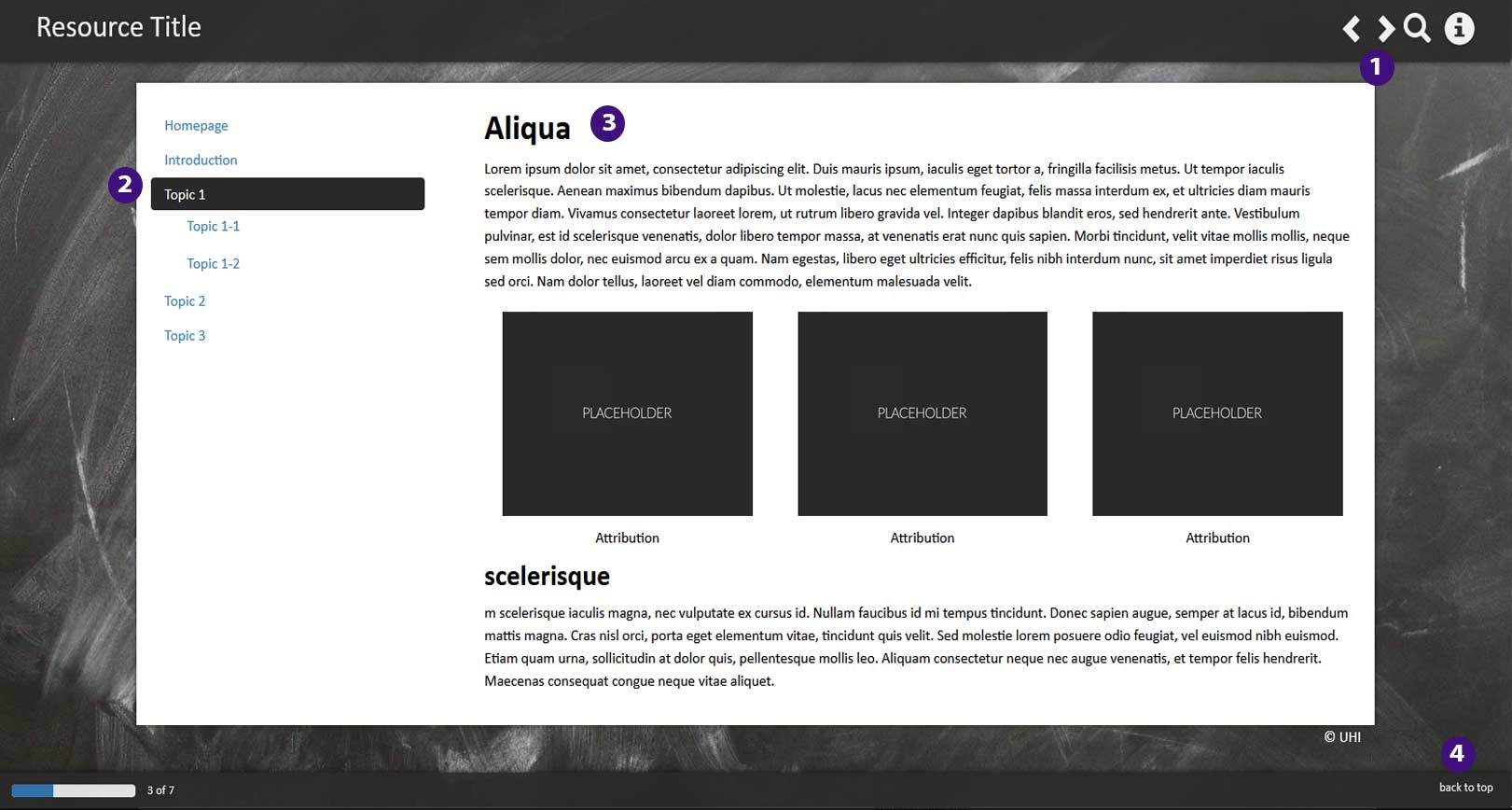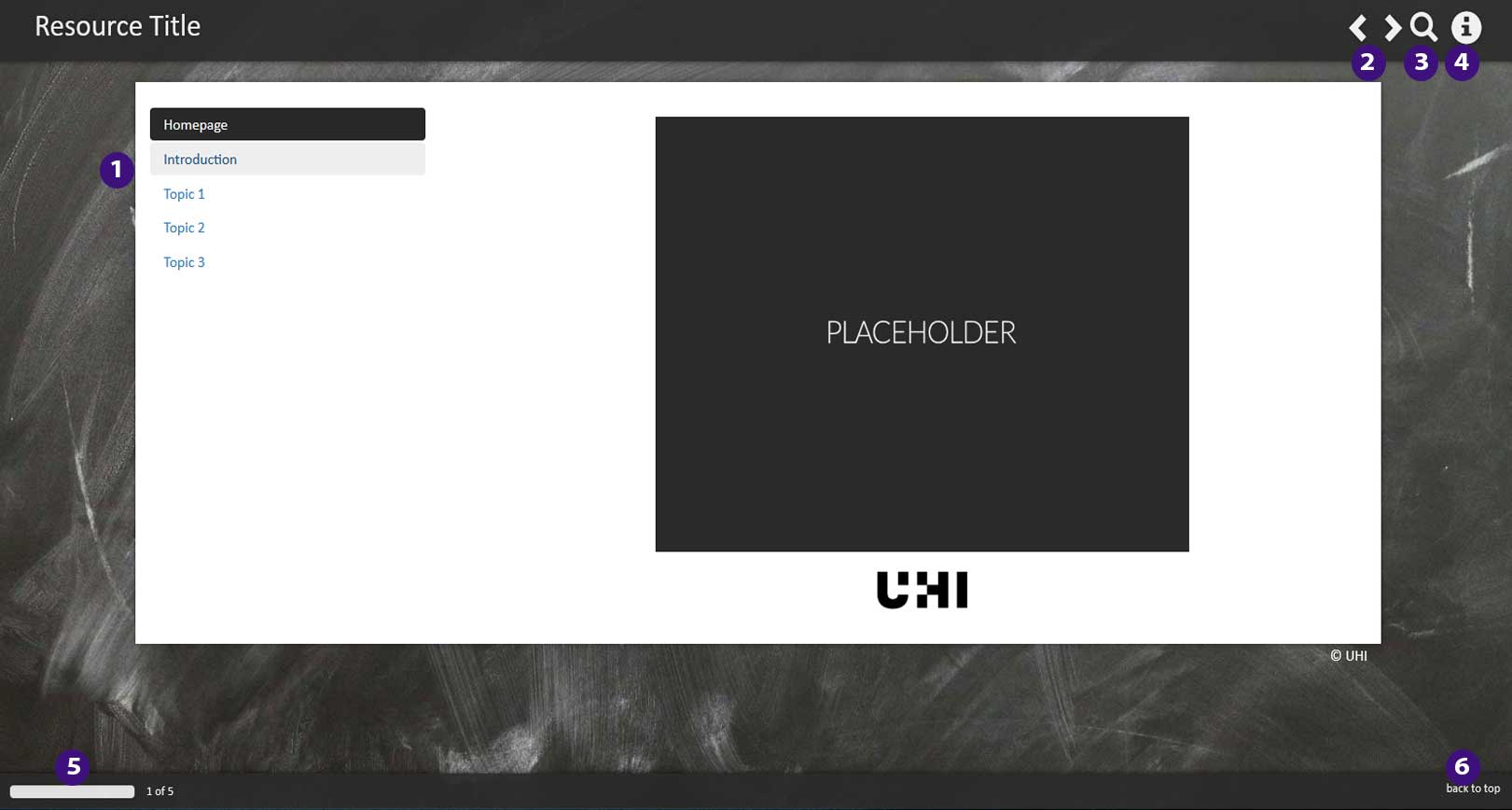PAT receives email notification that this is a Mitigating Circumstances claim for each student and they need to complete their sections via the online process. A link to the claim will be included in the email received. PAT completes their sections of the claim. When they press submit an email notification containing the link to the claim will be sent to the Mitigating Circumstances Panel Chair. Also an email notification will be sent to the student indicating the PAT has completed their sections.
Introduction
These resources provide guidance and advice on how to carry out your role as a PAT effectively. By the time you have completed all the sections you should be able to:
- Describe the PAT roles and responsibilities;
- Reflect on the best advice for students;
- Provide appropriate signposting to other services.
It will support you to:
- Fulfil your responsibility as a PAT;
- Develop your skills as a PAT through reflection and further practice.

Enhancing learning and teaching
Why we need PATs
The scope
The Personal Academic Tutor is a key person in supporting students during their studies with the University, this list outlines the range and limits of support you should offer students assigned to you.

The role of a Personal Academic Tutor
Audio: A is for Academic
Download a transcript of this audio/recording (2 minutes 29 seconds)
A PAT for every student
Every student at UHI, whether on a SQA (HN) programme, an undergraduate or post graduate or as a life-long learner is entitled to an assigned Personal Academic Tutor (PAT).
In order that all students receive equivalent support irrespective of where or how they are studying a common framework for PATs was approved by the University in 2012 with the PAT role being formally established in that year.
In 2024 there were over 540 Personal Academic Tutors in the University (see maps opposite for locations of all the partner colleges) covering all HE courses and supporting students across the highlands and islands and far beyond.
Audio: Andy Fraser talks about being a PAT
Download a transcript of this audio/recording (3 minutes 15 seconds)
 UHI Campus Map (click to to visit web site)
UHI Campus Map (click to to visit web site)
Students tell us
The vital support that PATs provide is highlighted in these comments from students in BA Child and Youth Studies.
'Hats off to the team, they were Brilliant!'
'The support was fantastic!'
'Encouragement and advice I have received from the team from the team at UHI has been fantastic and I hope as I go forward I can build on the foundations you have given me.'
What PATs do
PATs are a member of the university's academic teaching staff, support staff or Learning Centre manager. It is normally expected that a PAT would be educated to at least one SCQF level above their module responsibility or be a member of the Higher Education Academy or hold a TQFE or equivalent qualification. Some university partners may not be able to provide PATs with these qualifications and if this is the case academic the partner may be asked to confirm a PAT is sufficiently experienced in providing academic support to students.
PATs are often:
- A member of academic staff, support staff or Learning Centre manager acting as a PAT for a number of students who are studying a number of subjects. This is often the case in smaller Academic Partners who provide HAP (Home Academic Partner) facilities for a number of students but are not directly responsible for teaching the courses. In the latter instance signposting students to programme leaders for specific academic queries may be required.
- Lecturers on the students programme in question or a related subject area.
Whilst a PAT will often be a subject expert in their students' programme of study a PAT is not expected to bring that subject expertise to bear for all modules on the course. When subject specific questions arise, the PAT's agreed responsibility is to refer the student to the Module Leader, co-deliverer or Programme Leader if appropriate. A PAT's responsibility tends to fall into four broad areas of student support:
- Academic advice to students
- Signposting and referral
- Student withdrawal

Erika Sutherland, MLitt Archaeological Studies at the Orkney College UHI campus
Academic advice to students
Providing academic advice to students will vary, however there are a number of required minimum standards which are indicated below, but there's also a wide range of academic issues on which a student may seek advice from a PAT - for example study skills, academic writing and how to manage your time effectively.
Student support and guidance will be available at each academic partner college, and you should familiarise yourself with what is offered locally. In addition there are resources which are available to all University students. In the tabs below, you'll find resources to support you in providing this advice to students.

A PAT meeting a student
It is expected that PATs conduct an introductory meeting with their students in the starting semester each year as part of an extended induction to the university and the specific course/year of study.
Essential student skills
A key part of the university induction is encouraging students to work through the Essential Student Skills resources.
In addition they should provide a minimum of one academic advisory session on an individual basis, where academic progress is reviewed per student each semester. Records of these meetings must be kept in confidence and made available to others only with students' permission. Concern over academic progress is to be discussed and actioned as appropriate. PATs should particularly ensure that those students who do not receive face to face teaching within their HAP are communicated with on a regular basis.
Academic standards and quality regulations
Supporting students by providing information on Academic Standards and Quality Regulations, is an important role for a PAT. The regulations cover all undergraduate and postgraduate students and originally were ratified by Network Academic Council (NAC) in October 1997. Since then, the regulations have been subject to regular amendments and additions.
The avoidance of plagiarism and copyright issues are crucial for students.
UHI students are expected to cite and reference any sources appropriately and are warned that a failure to acknowledge someone else's intellectual property is regarded as plagiarism. There are a range of resources to support students to fulfil their responsibilities in this area. These are available from the UHI Library website.
Copyright
The University has guidelines and support on copyright issues these can be found on the UHI Copyright licensing area of the University website. In addition, the EDU cover copyright, in terms of image use in their Finding and using images guide.
Signposting and referring
PATs are not expected to know about every aspect of study provision with the University, so a valuable role in supporting students is to provide signposting and early referral to appropriate specialist information and assistance. This may include signposting on such issues as IT and Digital Infrastructure access, library and learning resources, finance and personal concerns, including issues relating to disability or additional support needs and careers advice.

Support Services in each academic partner have professional expertise in a wide range of support areas and are there to help both advisers and students. Where a student agrees to be referred to more specialist services, try to make the referral during your meeting with the student and then to keep in touch and monitor progress. Keeping in regular contact is especially important where a student is a remote or networked learner and these students should expect a minimum of two pro-active contacts from their PAT each academic session.
Useful signposting links
There is probably no such thing as a typical list of signposting required by students, however the following links help with the common queries from students.
Mitigating circumstances
University Regulations
As a PAT you will be expected to provide advice and assistance to students about submitting a claim for mitigating circumstances, and providing evidence to support the claim. There is guidance on mitigating circumstances in Appendix H of the University Regulations.
A student might have an approved entitlement to access coursework extensions as a result of disclosed additional support needs. Such an entitlement would be documented in the student’s Personal Learning Support Plan (PLSP), as a planned response to disclosed additional needs. PLSP adjustments are treated separately from claims for Mitigating Circumstances.
Mitigating circumstances procedures
- Mitigating Circumstances procedure for degree students – guidance and FAQs in Exam Board Sharepoint area
- Mitigating Circumstances procedure for degree students – Process map (PDF)
- Mitigating Circumstances procedure for SQA students – guidance in SQA Sharepoint area
If you have any queries about the Mitigating Circumstances process, or about a specific student case, you can contact the team directly at mitigating.circumstances@uhi.ac.uk.
Online claim process for degree students only: Step by Step Guide
Student completes the mitigating circumstances claim form online via UHI Records student hub using own login details (or PAT can do this on behalf of student). Completes all sections and press submit. When they press submit, an email notification containing the link to the claim will be sent to their PAT to check the details.
N.B. if necessary, you (the PAT) can complete a claim form on behalf of the student but you also still need to complete step 2.
Mitigating Circumstances Panel Chair receives email notification claim for each student and they need to review the claim and make the decision whether the claim is approved or otherwise. An email notification of the decision will then be sent to the student and PAT.
Exam Board
- True mark will be recorded i.e. any late penalties lifted
- Marks agreed by exam board and resit opportunities discussed and agreed. This is recorded by the exam board clerk.
Withdrawals, suspension, repeats
The relationship between PATs and students is vital in this process as PATs will be able to spot signs of students disengaging at an early stage and can initiate appropriate interventions to help them refocus on their studies or decide which is the best option for them going forward.
The process is detailed in Section 16.67 - 16.71 of the Academic Standards and Quality Regulations. The online withdrawal form must be completed for all students withdrawing from their programme of study. Both the PAT and the Programme Leader have a role in the withdrawal and the transfer/suspension process.
If a student is thinking about withdrawing or suspending, they should be advised to visit the Thinking of Leaving? section of the UHI website. This page includes a link to the Withdrawal Process, as well as a useful timeline regarding financial implications.
When informed that a student is suspended/withdrawn, the Student Records Office will contact them in writing to explain what this means and their options e.g., appeal process. Any request for suspension/permanent withdrawal should not be submitted, or supported, where any disciplinary process which may result in loss of registered status has already commenced.
Auditing a module
Students may also be able to audit a module, although this would be at the discretion of the Programme or Module Leader. Auditing a module means that students participate in the VC lectures and seminars, participate on the discussion board, and do the readings for the module but they don't do any assessments. Auditing a module is ideal for people who are interested in undertaking a module for personal interest, with no desire to gain a qualification. If a PAT thinks this option is suitable for the student they’re discussing options with, they should either enquire with the relevant Programme Leader or ask the student to do so. It should be noted this would in the main appeal to mature students who are looking to enjoy studying a subject for pleasure.
Useful information
Link to guidance
The Student Records Office have produced a staff guide for Withdrawal, transfer, and suspension. This includes detailed information on dates and potential impact, throughout the academic year.
Indispensable resources
The range of information a PAT could need probably touches on every aspect of student learning. It’s not been possible to include everything within these resources but here are a few essentials:
Log into UHI Records.
Then click the PAT button from the Staff Hub:
And click View My Students:
The My Students screen includes a Student Support column. A View link and flag will be visible for any student who has an arrangement in place within Additional Support Online as a result of disclosed additional support needs. Click the View link for further details of the support measures agreed for that student.
If you can see a flag in the Student Support column without a View link you are advised to contact local Academic Partner Student Services in the first instance to ensure the appropriate records are set up.
Further support
Further details are available at Inclusive and learning support and from the university's Disability Support Coordinator, Mark Ross (Mark.Ross@uhi.ac.uk) in the first instance.
The university's web-based Additional Support Online system enables students with an approved Personal Learning Support Plan (PLSP) in place to access their support records via UHI Records. The system records a student's interactions with Academic Partner Student Services and is available to FE and HE students.
Additional Support Online allows students with disclosed needs and relevant staff (e.g. student support practitioners and Personal Academic Tutors) to view and work from a single source of data from within UHI Records. On-demand reports are now also available to provide details of specific student requirements on a need-to-know basis (e.g. to Academic Partner Exams Officers, for the purposes of implementing exam arrangements).
The system promotes transparency in the provision of student support and engages the student as an equal partner in the process.
PATs can use Additional Support Online to:.
- View details of a student's appointments / contact with Academic Partner Student Services.
- Identify which of their students has an approved PLSP in place, and view relevant PLSP recommendations that have been put in place for the student. PATs are responsible for disseminating a student's Summary of Support to relevant staff involved in teaching the student.
- Download a university dyslexia sticker for a student (if access to dyslexia stickers has been approved within their PLSP.
- View items of equipment that have been loaned to help support the student during their studies, and see when loaned items are due back.
- View any exam arrangements that have been approved for the student.
Further support
You will find a wide range of staff guidance on the Inclusive Practice in SharePoint. This includes the PLSP Summary of Support Tool which explains how to view and forward the summary of support, which is an important part of the PAT role.
Each international student will have a HAP and it is the responsibility of that HAP to assign a PAT to those international students just as they would for any other student. Each academic partner will have either a designated individual or department with responsibility for ensuring legislation is complied with and becomes process. They will work with departments and teams within their AP to ensure any such requirements are reinforced. There will be a natural interaction between the PAT and the aforementioned individuals and departments e.g. the PAT may need to flag up poor attendance.
International students
More information on international students is available from the university website.

International student
The university has bought software (Ally) that runs through Brightspace. Ally is owned by Blackboard and is often referred to as Blackboard Ally. The software is widely used and will help staff make their content accessible and offers students alternative formats of their learning content.
Additionally, Blackboard have produced an Instructor Package: Resources and Support which will help you start using Ally. Note that students do not see the accessibility score of a unit/module or its content, they only see the alternative formats available.

Students may come to you with questions or issues relating to alternative formats of their learning content. In the first instance have a look at the FAQs on this site and if you can’t find an answer, please try asking your local Accessibility Champion or the EDU and if they can’t help, they will suggest submitting a Unidesk Ticket.
UHI Futures

Over the course of our lives, we will make frequent career decisions. Our career journey, alongside many other areas of our lives, will be subject to constant change and the influences of unplanned events and unexpected opportunities.
The UHI Futures team encourage you to see career decisions not as ‘problems to be solved’, but as amazing opportunities to be curious, look creatively at possibilities and consider what opportunities exist across the Highlands and Islands and beyond.
Handshake
Handshake is a new and dynamic career management platform, enabling all UHI students to access a range of online services, helping to form an essential part of their UHI journey. Handshake provides students with the opportunity for real-time, two-way communication with local, national and international employers, helping to improve their visibility and heighten the chances of landing their perfect job. Handshake also gives students the ability to:
+ book appointments with the UHI Futures team
+ attend online events and seminars
+ access a range of career resources
+ connect directly with alumni and students with shared areas of study and career interest.
Handshake
Useful links
A full suite of career development resources are available through the UHI Futures website, providing information and advice on various topics such as:
+ Managing your career
+ Options with your qualification
+ Job searching
+ CVs and applications
In your role as a PAT, if you find yourself in a conversation where you think a referral to the UHI Futures team would be helpful, please contact careers advisers, Iain or Helen for an initial discussion:
Iain Eisner: iain.eisner@uhi.ac.uk
Helen Anton: helen.anton@uhi.ac.uk
University Records: PAT Updating Tool
Once the PAT assignments have been made by academic partners, the information will be entered into SITS using the relevant network ID (i.e. 'EO01XX'). The academic partners determine who will be responsible for entering this information and ensure that the information and any support needed are provided as appropriate
An online tool developed for this purpose is available via UHI records and can be accessed by all staff members. The PAT Updating Tool provides details about:
- logging in to student records
- PAT assignment by individual student
- PAT assignment by course
It is up to those entering the information to choose which option they will use e.g. if staff are provided with a class list then it may be easier to use the PAT assignment by course option, if it is just a few students at a time then the individual student tool might be easier to use.

Semester timeline
The responsibilities and key PAT activities can be reviewed as a timeline. The timeline below which Matt Sillars, Social Science Lecturer at Inverness College UHI uses, shows four distinct 'predictable moments' and details the key activities within each moment.
Interaction (below): Click on each predictable moment on the line below (black circles with 'i's) to view the key activities:
Audio: Stressing
Download a transcript of this audio/recording (1 minute 38 seconds)
Bookshelf
Below you will find links to form templates, contact lists, web pages, and other documents which have been mentioned in this resource.
These can be downloaded and printed, if required, although if you do so it would be worth checking at the start of each term that you are using the most up to date version, as changes may have been made.
When using the downloadable forms, please ensure you adhere to your local academic partner Data Protection Processes.
Student Support Contacts (webpage)
The PAT Role (PDF)
The Range & Limits of PAT Support (PDF)
HISA Advice Service (PDF)
Guidelines for Resit Requirements (PDF)
Personal Learning Support Plan (PLSP) Staff Guidance (Word)
Accessing PLSP Summaries of Support – Instructions for Academic Staff (Word)
Class Rep Role; Guidance (PDF)
Responding to Disclosures of Gender Based Violence – Staff Guidance (PDF)
Process for Allocating PATs and Inputting to SITS (PDF)
Policies, Procedures, and Guidance (link to SharePoint site)
Higher Education Leadership Foundation: Effective Listening (PDF)
Higher Education Leadership Foundation: Tips for To-Do Lists (PDF)
Further resources
Improving as a PAT
Listening to the experiences of PATs, the following four skill areas were highlighted as particularly important. For each skill area you'll find general guidance to support these aspects of being a PAT.
It is likely that students will come to you as a first point of contact for a wide range of complex issues that they may be struggling with.
It is important to be clear that you may not be able to directly support them yourself, and in those instances to signpost to specialist staff where appropriate.
This is particularly relevant for issues relating to mental health, gender based violence (GBV) and safeguarding, and additional (learning) support needs.
If you require any advice or guidance on when to refer and to whom, please contact Michaela Gilmore or Lyndsay Sutherland.


UHI's Data Protection Policy
When a student discloses personal information to the Personal Academic Tutor (PAT), it should remain in confidence. However, if the PAT feels that, in the student's best interest, the information should be shared with others, for example if the student has additional support needs and requires specialist support arrangements, the student's agreement must be obtained first. All staff must comply with the University’s Data Protection Policy.
Exceptions
- Where information disclosed suggests that the student is involved in illegal activity or in serious breach of Academic Partner policies.
- Where a PAT has concerns that the student may cause harm to himself/herself or to others.
- In these circumstances, each Academic Partner should have a nominated person, such as a Student Services Manager or someone within the Senior Management Team, whom the PAT can contact.
Where possible it is a good idea to meet students as a group to cover common issues. How you meet with students and for how long depends on what works best for you. Here are some examples of how some PATs have met with students:
- Timetable 15 minute sessions with each student;
- Provide 3 half hour sessions over a year;
- Provide a regular appointment for queries.
- Meet with students as a group to cover common issues
Make sure that you set realistic expectations at the start and decide how and when you are going to be available.
Ten Tips for To-Do Lists
A number of PATs have said that the role can be very demanding and time-consuming especially at particular points during the semester. A quick google search or a search on UHI Library will demonstrate that there are lots of freely available online resources on time management.
Time management
The time management resources created for our students by the Educational Development Unit (EDU) may also be just as helpful to you. Here is a link to the Time Management resource in the Essential Student Skills suite.
Records of these meetings must be kept in confidence and made available to others only with students' permission
It is helpful to use a pro-forma to record the main points of scheduled individual meetings in writing which include outcomes or action points. This information may be needed if a student needs to support a claim for mitigating circumstances or make an appeal.
You should keep a record of any interactions with students outside of formally scheduled meetings. A written record of student ID, time of contact, issue discussed and brief summary of advice given and any actions. This can be helpful should a student need to gather evidence for an appeal or mitigation later in the year. Keeping good records also ensures you have a note of when a student has contacted you, what it was about and what you said.
What next...
We hope that this resource supports you in fulfilling your responsibilities as a PAT in the University of the Highlands and Islands. They have been design to be easily accessible, to provide quick access to key information and to support the development of professional skills through reflection and further practice.
If you would like further information on being a PAT or if you would like to share examples of your practice with colleagues by contributing to this resource please contact:
Michaela Gilmore
Michaela.Gilmore@uhi.ac.uk
Tel: 01463 279271










